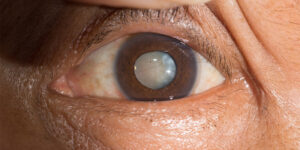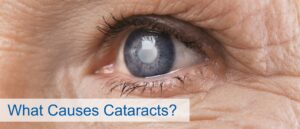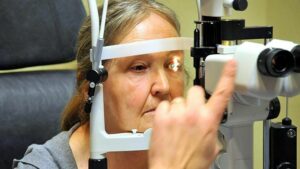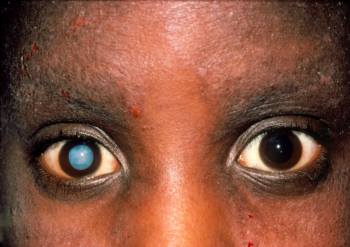Cataracts are a common eye condition that can occur in both adults and children. In fact, cataracts are the leading cause of vision loss in the world. There are several different types of cataracts, but the most common is the mature cataract. In this blog post, we will discuss what you need to know about mature cataracts. We will cover symptoms, treatment options, and prevention tips.
Defining Mature Cataract
 Before understanding this particular subtype, it is essential to know what a cataract is in general. A cataract is defined as an opacification of the natural crystalline lens within the eye. In other words, it is a clouding of the eye’s lens. This can cause decreased vision and eventually, blindness if left untreated.
Before understanding this particular subtype, it is essential to know what a cataract is in general. A cataract is defined as an opacification of the natural crystalline lens within the eye. In other words, it is a clouding of the eye’s lens. This can cause decreased vision and eventually, blindness if left untreated.
In particular, mature cataracts are when the lens becomes totally opaque. This means that light cannot pass through the lens to reach the retina. This is one of the most severe types of cataracts because it can cause complete blindness. It is important to note that not all cataracts progress to this stage. In fact, most cataracts can be treated before they cause significant vision loss.
There is a notable difference between a mature cataract and a nuclear cataract. A nuclear cataract is when the central part of the lens becomes opaque. This type of cataract tends to cause yellowing or discoloration of vision. In contrast, a mature cataract is when the entire lens becomes opaque. Moreover, there is also a condition known as immature cataracts, which is when the cataract is in an early stage of development. This type of cataract does not usually cause vision problems and does not require treatment.
Symptoms
The symptoms of a mature cataract can vary depending on the individual. However, there are some common symptoms that are associated with this condition. These include:
- Blurry vision
- Decreased night vision
- Glare and halos around lights
- Double vision in one eye
- Fading or yellowing of colors
While these may seem too similar to regular age-related vision changes, it is important to consult with an eye doctor if you experience any of these symptoms. With proper treatment, mature cataracts can be managed before they cause severe vision loss or blindness.
Causes
There is no specific cause of mature cataracts. However, there are some risk factors that can increase your chances of developing this condition. These include:

- Age: Mature cataracts are most common in adults over the age of 60.
- Diabetes: People with diabetes are more likely to develop cataracts at a younger age.
- Family history: If you have a family member with cataracts, you may be more likely to develop them as well.
- Previous eye injuries or surgeries: A previous injury to the eye or surgery can increase your risk of developing cataracts.
- Exposure to ultraviolet (UV) light: People who are exposed to UV light on a regular basis are more likely to develop cataracts.
- Smoking: Smoking is a risk factor for many different health conditions, and cataracts are no exception.
- Certain medications: Some medications can increase your risk of developing cataracts. These include steroids, certain antidepressants, and anti-inflammatory drugs.
One may become vulnerable to the possibility of developing a mature cataract with advancing age. However, there are other risk factors that can play a role as well. It is important to consult with an eye doctor if you have any concerns.
Effects
Mature cataracts can have a significant impact on your quality of life. This is because they can cause severe vision loss and even blindness. In addition, mature cataracts can make it difficult to perform everyday activities such as driving, reading, and watching television.
Moreover, mature cataracts can also lead to an increased risk of falls and accidents. This is because they can cause decreased night vision and make it difficult to see in low-light conditions. In addition, mature cataracts can also cause glare and halos around lights, which can make it difficult to see when driving at night.
If you have mature cataracts, it is important to consult with an eye doctor. With proper treatment, you can manage your condition and improve your quality of life.
Diagnosis
 The process of diagnosing mature cataracts usually begins with a comprehensive eye exam. During this exam, your eye doctor will check your vision and examine your eyes for any signs of cataracts. They may also use special tests to get a closer look at your eyes.
The process of diagnosing mature cataracts usually begins with a comprehensive eye exam. During this exam, your eye doctor will check your vision and examine your eyes for any signs of cataracts. They may also use special tests to get a closer look at your eyes.
After the initial examination, your eye doctor may recommend further testing. This may include an ultrasound of the eye or a CT scan. These tests can help to rule out other conditions that may be causing your symptoms. There are a lot of similarities between the symptoms of cataracts and other eye conditions. Therefore, it is important to get a proper diagnosis before beginning treatment.
Some other types of tests and procedures that may be used to diagnose cataracts include:
- Visual acuity test: This test measures your ability to see clearly at different distances.
- Slit-lamp examination: This is a type of microscope that is used to examine the eye.
- Pupil dilation: This is when your eye doctor dilates your pupils in order to get a better look at the back of your eye.
It is important to work closely with your eye doctor to ensure that you get an accurate diagnosis. With the proper diagnosis, you can begin treatment and manage your condition before it causes severe vision problems.
Treatment Options
If you have been diagnosed with cataracts, there are several treatment options available. The best option for you will depend on the severity of your condition.
In some cases, glasses or contact lenses can help to improve vision. However, this is only a temporary solution and will not treat the underlying cause of the cataracts.
For more severe cases, surgery may be necessary to remove the cloudy lens and replace it with a clear artificial one. This is a very common procedure that is usually successful in improving vision.
Cataract surgery is generally safe and effective. However, as with any surgery, there are some risks involved. These can be discussed with your doctor prior to surgery.
Additionally, there are also a lot of things that you can do to prevent cataracts from getting worse. These include:
- Wearing sunglasses or a hat with a brim when outdoors
- Limiting your exposure to UV light
- Not smoking
- Eating a healthy diet
- Exercising regularly
- Maintaining a healthy weight
These lifestyle changes can help to slow the progression of cataracts and improve your overall health.
If you have been diagnosed with cataracts, there is no need to be alarmed. With proper treatment, most people are able to maintain good vision. However, it is important to consult with an eye doctor so that you can discuss the best treatment option for you.
Conclusion
In conclusion, mature cataracts are a common eye condition that can cause vision problems. If you have been diagnosed with cataracts, there are several treatment options available. With proper treatment, most people are able to maintain good vision. However, it is important to consult with an eye doctor so that you can discuss the best treatment option for you.
If you have cataracts, don’t wait to get them fixed! Cataract surgery is a common, safe, and effective procedure that can improve your vision and quality of life. At EyeMantra we have a team of experienced eye surgeons, who will be happy to answer your any questions on cataract surgery, cataract surgery cost, cataract lens cost for different cataract surgery types- Phacoemulsification, MICS & Femto Laser Cataract . Call us at +91-9711116605 or email at [email protected] for inquiries.


